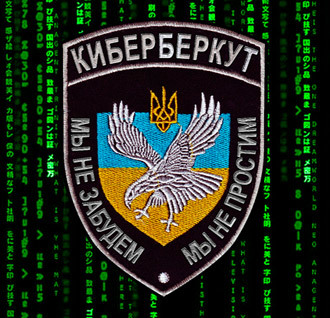The hacktivist group calling itself CyberBerkut has claimed responsibility for taking down 3 NATO websites in a series of DDoS attacks. The group criticizes NATO for stirring up turmoil in Ukraine and helping the “Kiev junta” suppress freedom of speech.
CyberBerkut claims it brought down NATO’s main website (nato.int), as well as the sites of the alliance’s cyber defense center (ccdcoe.org) and NATO's Parliamentary Assembly (nato-pa.int).
The group, in a message posted on its website, says its members will “not allow the presence of NATO occupation on the territory of our homeland!”
The hacktivists also claimed that they are countering the action of the so-called “Tallinn cyber center” or NATO Cooperative Cyber Defence Centre of Excellence, which has been hired by the “Kiev junta” to carry out “propaganda among the Ukrainian population through the media and social networking.”
The Western cyber network, hactivists claim, is hiding behind the façade of the so-called “Maidan Cyber Sotnya” and helps “blocking objective sources of information and concealing criminal activities of those calling themselves the ‘legitimate authority.’"
NATO has confirmed attacks on its websites via twitter, saying sites suffered from “significant DDoS attack.” No critical systems has been hit and the integrity of NATO systems remains intact, NATO spokeswoman Oana Lungescu said.
Several #NATO websites have been target of significant DDoS attack. No operational impact. Our experts working to restore normal function.
— Oana Lungescu (@NATOpress) March 15, 2014
Since the coup deposed legitimate authorities in Kiev, CyberBerkut – named after the riot police unit that became an “arch-enemy” of Maidan – has pledged to fight against the stream of “neo-fascist propaganda” from “vicious and corrupt media.”

Cyberattacks from the other side of the barricades have also escalated over the recent weeks as Ukrainian and Western media were spinning the story of a “Russian military invasion” in Ukraine. Cyber activists supporting the Maidan coup were targeting Russian government websites and media.
Just this Friday, unidentified hackers temporarily brought down the Russian presidency’s site and the Central Bank’s web page in a wave of online attacks. “A powerful cyber-attack is underway on the [Kremlin] site,” a Kremlin spokeswoman said, adding they had been unable to discern who had carried out the attack.
The Russian Foreign Ministry’s website also suffered disruptions Friday. They did not rule out that the problems could also be connected with hacker attacks.
On Thursday, media sites in Russia also experienced cyber-attacks. Anonymous Caucasus claimed responsibility for taking down Russian Channel One’s website. Meanwhile, the Russia-24 TV channel said on its website that the internet resources of the All-Russian State Television and Radio Broadcasting Company (VGTRK) were also targeted in a “massive network attack.” Earlier in the week hackers targeted the website of news outlet LifeNews, slamming the organization as the “lapdogs of the FSB [Russian security service].”
DDoS attacks or denial-of-service attacks work by flooding the target server with communications requests, so that it becomes unavailable for users, without breaking the system’s integrity.

